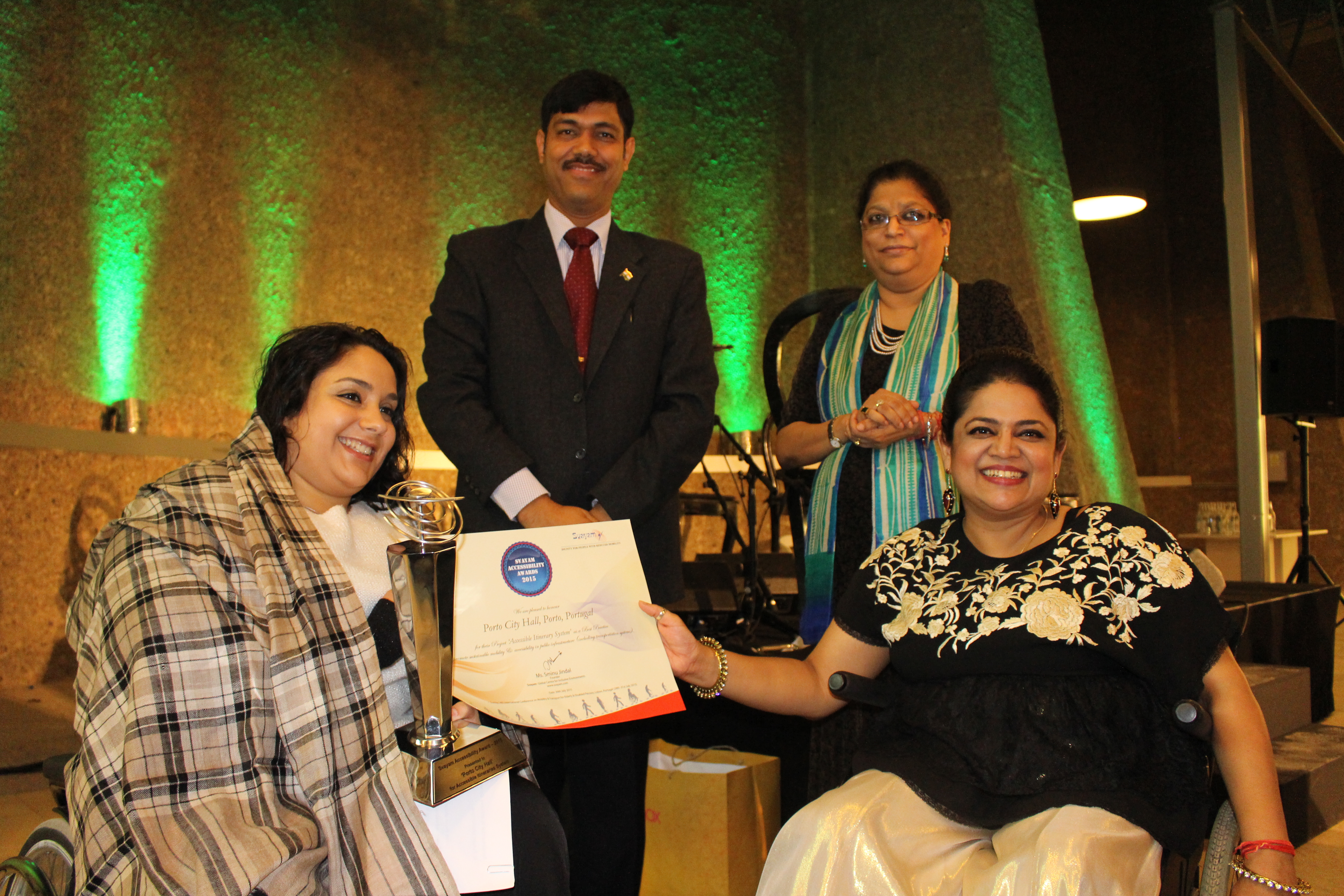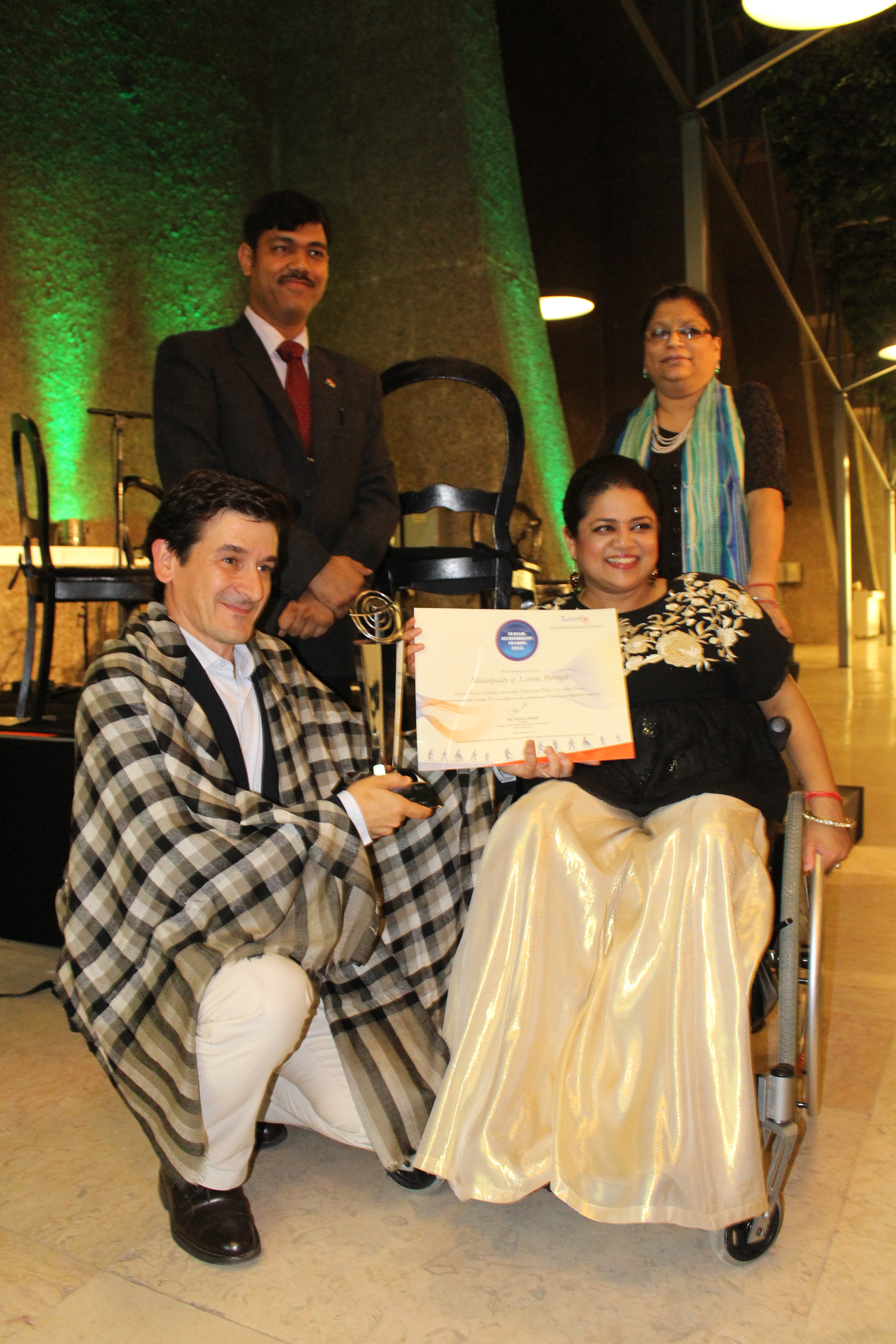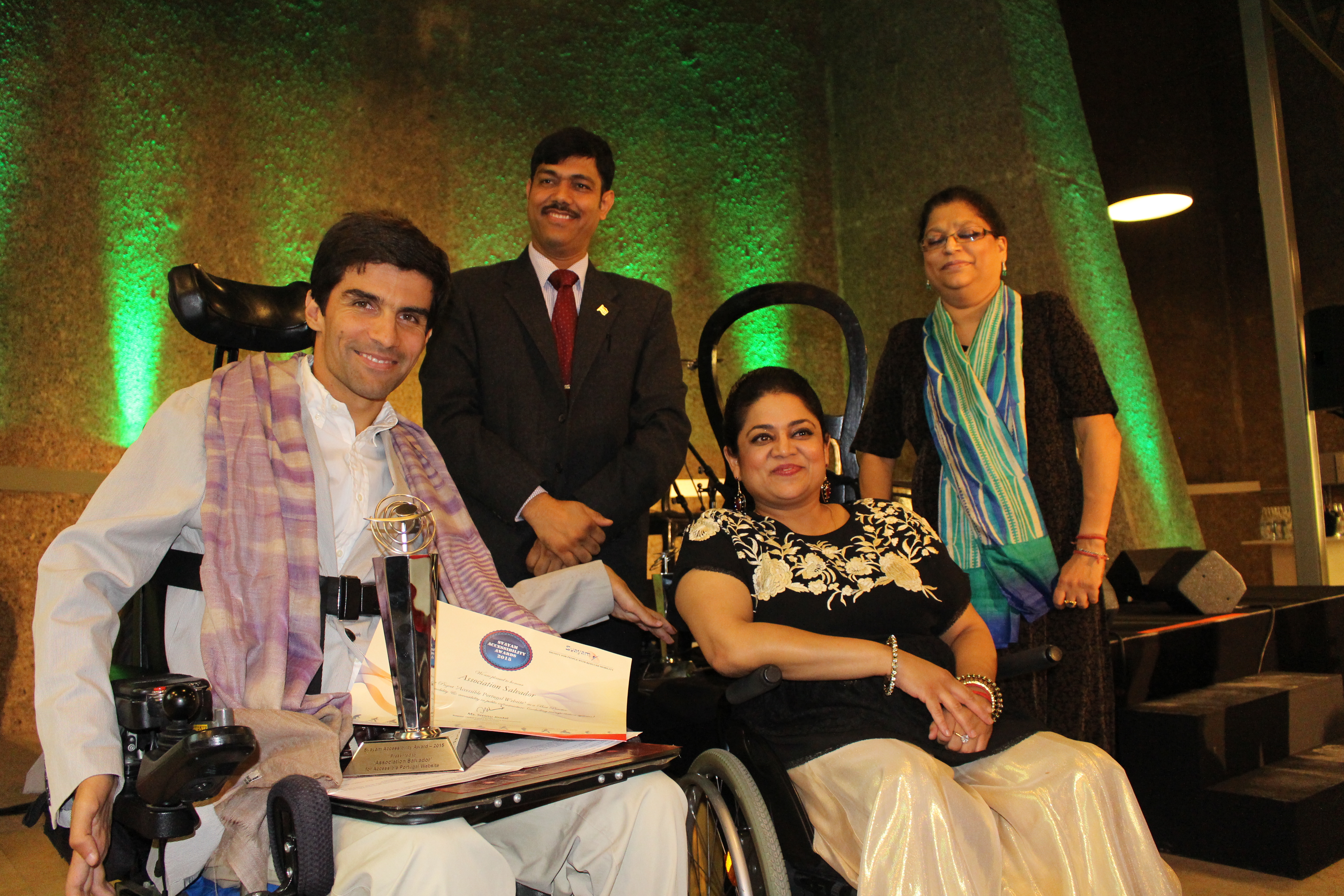Dear Colleagues,
The 14th International Conference on Mobility and Transport for Elderly and Disabled Persons will be held in Lisbon, Portugal, from 28 to 31 July 2015.
The 14th TRANSED conference will be hosted by Instituto Superior Técnico (IST) at Universidade de Lisboa.
TRANSED 2015 will gather scholars, decision-makers, industry, and citizens with an interest in accessibility issues and how to improve it. TRANSED 2015 International Conference received the formal endorsement of representatives of all stakeholders, namely: Government, Public Administration, Foundation for Science and Technology, Universities, and Transport and Infrastructure Operators, who will support the conference in several aspects.
The conference is organized under the theme “Aim and manage to implement inclusive access for all”. Please visit the web site for the selection of topics.
TRANSED 2015 will be an excellent opportunity to gather and share knowledge on any sort of mobility restrictions/accessibility
Website: http://www.transed2015.com/
Registration:
https://pco.abreu.pt/CLIENTES/abreu/formularios/form_4731902542.php
Follow the TRANSED2015 on:
Facebook: https://www.facebook.com/pages/TRANSED-2015/487026641398455
Twitter: https://twitter.com/TRANSED2015
Download the mobile App:
Android: https://play.google.com/store/apps/details?id=com.xtourmaker.transed
IOS: https://itunes.apple.com/pt/app/transed2015/id993138260?mt=8
CONFERENCE VENUE
TRANSED 2015 will be held at Calouste Gulbenkian Foundation.
http://www.gulbenkian.pt
ABOUT LISBON
Lisbon is a melting pot of cultures, flavours and spices. Lisbon is built on hills looking over the River Tagus. Modern and cosmopolitan, it is a great centre of culture and tourism, and a pleasure to discover on foot. Add to that its cultural diversity, laid-back feel and architectural time warp, and you have one of the most enjoyable cities in Europe.
Clean skies and the softness of its light are an integral part of the charm of this city. Seen from the river – one of the city’s many great viewpoints – Lisbon is an impressionist picture of low-rise ochre and pastel, punctuated by church towers and domes.
Several neighbourhoods offer interesting shopping areas of local flavour. Large, modern shopping malls with wide opening hours and easy access by public transport are also very popular.
One of the traditional centres of Lisbon’s nightlife is Bairro Alto, with its fado houses, restaurants and dozens of bars and clubs. After the riverside area was remodelled for Expo98, night life in Lisbon gained a new dimension both on east and west fronts.
People who want to get away from the city centre, however, can go with modern railways to Sintra or to Estoril and Cascais, about 30km away, with beautiful landscapes, urban settings and nice restaurants and bars.
Lisbon is a city that receives yearly a large number of visitors, both in business and leisure. Its offer of hotels is very strong, in all price categories, including some charming traditional units as well as large ones from most international chains.
Public Transport in Lisbon has recently undergone great improvements and includes underground, suburban trains and ferries, low floor buses and light rail, while maintaining in operation a small set of old tramway lines, among which the famous line 28, one of the icons of the city.
Day and Multi-day passes are available to enjoy the full public transport network without hassle.
For more information about Lisbon and tips on what to see, please visit the Tourism Bureau website: http://www.visitlisboa.com/
TOPIC AREAS
Conference theme:
“Aim and manage to implement inclusive access for all”
STREAMS:
The conference is organized in two streams of intervention, being:
SCIENCE AND TECHNOLOGY
Practice and Experience:
All conference topics are very open and can be approached from any of the two referred streams. For each topic a number of sub-topics are open from the outset but others can be created. In addition, special sessions can also be envisaged and participants interested in organizing it should contact the Conference Chair for that purpose.
Topic A: Policy approaches for mobility needs and solutions for the ageing and disabled population
The demographic evolution of Society enables to foresee next decades with a substantial increase of ageing population with different degrees of disabilities. In addition, changes in patterns of living and more monoparental families are formed which represent users of temporary restrictions. Cities and regions must reflect in these changes and adjust their policies accordingly so that user needs are satisfied
Subtopics:
A1 – Meeting the needs of people with disabilities in light of changing demographics;
A2- The economic and social implications of living and coping with disabilities;
A3– Cases in policy actions: turning legislation into action.
Topic B: Restricted accessibility as an integrated part of mobility management.
Restricted accessibility or reduced mobility (different parts of the world use different designations) should not be managed as an isolated segment. This approach has led to exclusion of these groups of users despite providing them with increase quality of service. This approach must be changed towards a full integration of restricted accessibility in mobility management enabling citizens with temporary or permanent mobility to benefit from a complete inclusion in society. Mobility and accessibility are instruments for that inclusion.
Subtopics:
B1 – Defining and measuring accessibility;
B2 – Creating accessible urban environments;
B3 – Restricted accessibility in urban transport: success stories;
B4 – Rural accessibility issues;
B5 – Transport contribution for inclusive tourism;
B6 – Ensuring joined approach to planning and delivery for door to door mobility;
B7 – Designing and delivering accessibility for major events (e.g. Olympics etc.).
Topic C – Finding solutions through innovation
Innovation is a wide encompassing concept with an extensive meaning that can go from organization of processes to invention of new technology. Today a major challenge in mobility management is to bridge from mass transit to the capillary needs of the different segments of users. Innovation is required to create new and flexible services that can complement the regular public transport and provide an effective seamless mobility chains for all users, with and without disabilities.
Subtopics
C1 – New technologies and tools;
C2 – Engaging with users for flexible mobility solutions;
C3 – Case studies of innovative approaches to restricted accessibility;
C4 – New impairment realities (e.g. young families, monoparental families, ageing impairment, etc)
 Source: The Hindu
Source: The Hindu


